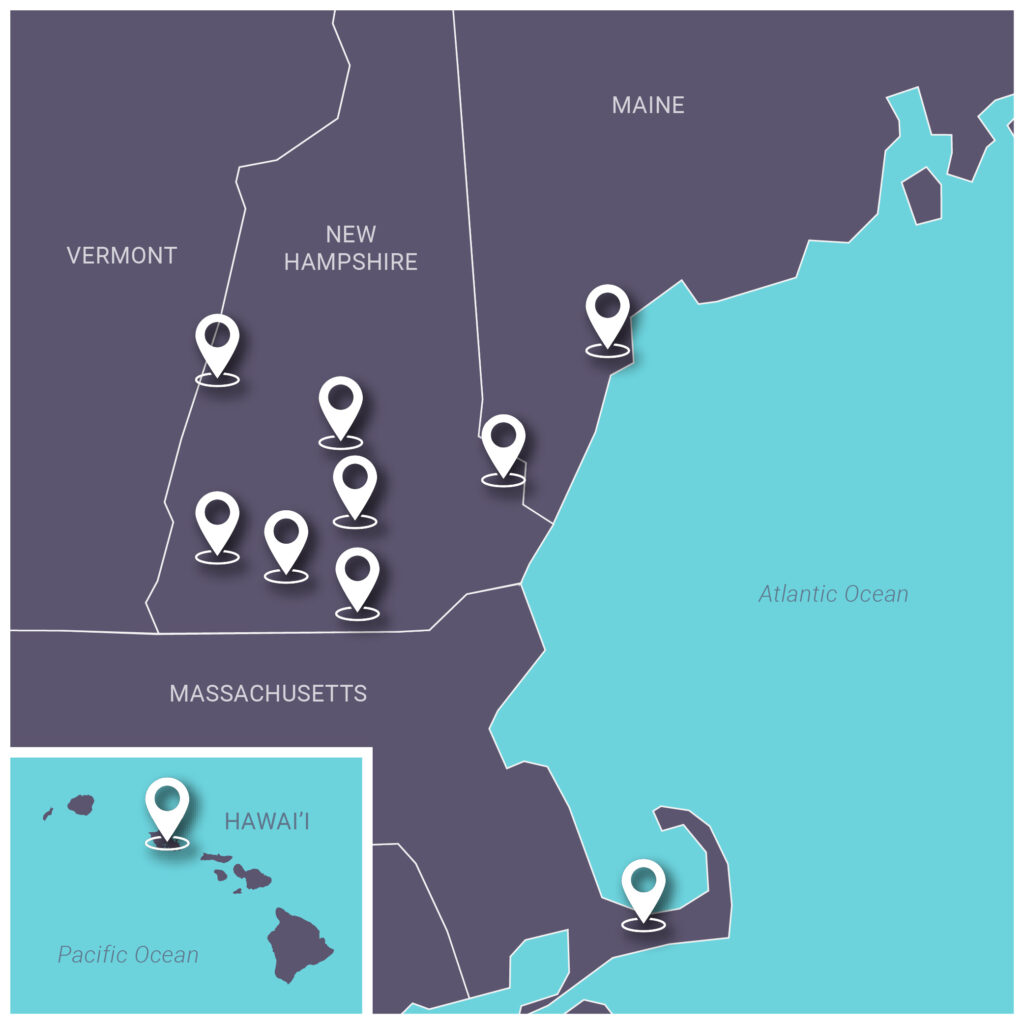If you have been accused of a crime, Shaheen & Gordon, P.A. is here to fight for your legal rights. Contact us to schedule an appointment with a New Hampshire Criminal Defense lawyer. Initial consultations are completely free and confidential.
New Hampshire Underage DWI Lawyer
Defending Your Future Against Underage DWI Charges
Defending drunk and impaired driving cases for clients under the age of 21 calls for a creative approach—one that accounts both for the enhanced penalties occasioned by such cases and concerns about a criminal record. For drivers under 21 convicted of DWI, the standard for prosecutors to prove their case is different. New Hampshire law imposes enhanced court sentences and additional administrative hurdles at the Department of Safety to secure the return of a privilege to drive.
Furthermore, prosecutors and police officers often approach these cases more rigidly than a DWI for a driver who is 21 years of age or older, concerned for the illegal use of alcohol, in addition to the allegation of impaired driving. Understanding these legal and practical considerations is essential in defending our cases.
Our NH underage DWI defense attorneys travel statewide and have principal offices in Dover, Concord, and Manchester and satellite offices in Nashua and Portsmouth. Our experience and geographic reach regularly call on us to defend DWI cases on behalf of younger drivers throughout New Hampshire, Maine, and Massachusetts, including those cases arising out of college towns in Keene, Durham, Plymouth, Concord, Manchester, Goffstown, Henniker, Nashua, and New London.
Mitigating the Impact of a First-Offense Underage DWI Conviction
A first offense DWI is a crime even for a driver under 21, resulting in a Class B Misdemeanor conviction. Understanding the nuances of New Hampshire’s DWI laws is critical when defending our younger clients. One year after conviction, New Hampshire’s DWI law permits a reduction from a Misdemeanor to a Violation, which converts a conviction to a non-criminal event. We pride ourselves on avoiding convictions for our clients. Still, when convictions occur, we take every step to mitigate their impact, including filing motions to reduce criminal offenses to violations when the law permits. This step is crucial for our younger clients as they fill out applications for college and employment and other requests for information about criminal convictions.
The Reduced Standards for Underage DWI
Typically, in New Hampshire, a test result showing that a driver had an alcohol concentration of 0.08 is considered prima facie evidence that they are under the influence of alcohol. However, this standard is dramatically reduced in the case of an underage driver, where the standard is just 0.02. This reduced standard has a dramatic impact on the prosecution of underage driving while intoxicated cases, often permitting mild cases to give rise to criminal consequences with a DWI conviction. For our clients of tender years, minimizing criminal consequences is a goal—we regularly blend into negotiations thoughts about early intervention, counseling, and concerns about the facts of a case to urge the State to back off its demands for a criminal conviction.
What Are the Enhanced Penalties for Underage DWI in New Hampshire?
While the alcohol standard is dramatically lower to support a conviction for underage DWI, the penalties are far more significant. A conviction for a first offense driving while intoxicated charge where the defendant is under the age of 21 calls for a total 1-year license loss with no opportunity for early reduction, completion of an impaired driver intervention program (IDIP), as well as any aftercare obligations and a fine of $500 plus Penalty Assessment of 24%. The length of this license loss is far greater than a typical DWI conviction for a driver over 21, where the minimum license loss is just nine months, and that license loss may be reduced to as little as 90 days with enrollment in the IDIP program promptly following sentencing.
In addition to this court-imposed license loss, law enforcement also initiate the Administrative License Suspension (ALS) process for underage DWI cases where there is an alcohol concentration exceeding 0.02 or where the Defendant refused to take a breath or a blood test. In either case, the Department of Safety imposes a six-month administrative suspension. In cases where Defendant agreed to submit to a breath or a blood test, this six-month administrative suspension runs concurrently or simultaneously, as the court imposed license loss. However, in cases where an underage Defendant refused the requested breath or blood test, this six-month administrative license suspension runs consecutive to, or on top of, any court-imposed license loss.
Through thoughtful negotiation, our attorneys routinely convince police officers and prosecutors to withdraw the administrative suspension in order to achieve fair court results.
On other occasions, and where the case appears to be proceeding to trial, our DWI lawyers take full advantage of any administrative hearing, using it as an opportunity to question the arresting officer or trooper under oath and, by so doing, improving our ability to prepare a case for trial.
Navigating the Administrative Challenges of Restoring Driving Privileges After an Underage DWI
Our DWI lawyers regularly see clients and attorneys alike misunderstand the administrative consequences that often flow from underage DWI convictions. Even after court and administrative license losses expire, the New Hampshire Department of Safety imposes additional hurdles before restoring driving privileges for specific younger drivers.
Specifically, New Hampshire issues a “youth operator’s license” to persons 16 years of age or older and under the age of 21. When the holder of a youth operator’s license is convicted of DWI, he or she is not eligible for re-issuance of a license before age 21 without going through another administrative hearing at the Department of Safety. The question at such a hearing is whether or not the driver will operate safely if the license is issued. Quite broadly, the law states that the Department of Safety may place restrictions on any license issued under these circumstances if those restrictions are in the best interest of public safety.
For our younger clients, our DWI team believes that our representation does not end at the close of a case in court. Instead, we believe firmly that success in a case only comes when we have addressed the collateral issues that may arise following a conviction. For drivers under 21 seeking the return of driving privileges after a DWI conviction, this means guiding our clients through the necessary steps to reinstate driving privileges, including, in some circumstances, appearing with our clients at administrative hearings to seek the return of driving privileges.






















